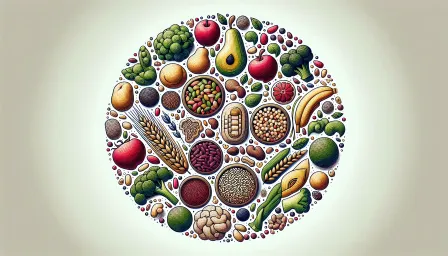Unlocking Health Benefits: Intermittent Fasting and Autophagy Explained

Discover the health benefits of intermittent fasting and how it induces autophagy, a critical cellular process for maintaining overall wellness. Learn about different fasting methods and their scientific backing.
Intermittent fasting has garnered immense popularity in recent years, not just as a weight loss strategy but also for its profound health benefits. One of the most compelling reasons behind its efficacy is a biological process known as autophagy. In this article, we will delve deep into what intermittent fasting and autophagy entail, their interrelationship, and the potential advantages for your overall health.
What is Intermittent Fasting?
Intermittent fasting, often abbreviated as IF, refers to an eating pattern cycle between periods of eating and fasting. It doesn’t prescribe specific foods, but rather focuses on when you should eat. There are several popular methods, including:
The 16/8 Method
This method involves fasting every day for 14-16 hours and restricting your daily eating window to 8-10 hours. It can be as simple as not eating anything after dinner and skipping breakfast.
The 5:2 Diet
In this method, you consume only about 500–600 calories on two non-consecutive days of the week and eat normally the other 5 days.
Eat-Stop-Eat
This involves fasting for 24 hours once or twice a week, for example by not eating from dinner one day until dinner the next day.
Understanding Autophagy
Autophagy is a vital cellular process where the body cleans out damaged cells and regenerates newer, healthier ones. This 'self-eating' process is crucial for cellular maintenance and combating various diseases.
Mechanisms Behind Autophagy
Autophagy involves the degradation and recycling of cellular components through lysosomes. Essentially, it is the body's way of cleaning house, removing dysfunctional components, and making room for newer, healthier cellular machinery.
Fasting triggers autophagy by putting the body into a state of metabolic stress. In the absence of adequate nutrients, cells are forced to break down their own components for energy, thus initiating the autophagic process.
The Health Benefits of Intermittent Fasting and Autophagy
The synergy between intermittent fasting and autophagy translates to a myriad of health benefits that can aid in overall wellness.
Cellular Health and Longevity
Autophagy plays a critical role in removing dysfunctional cells, thereby contributing to increased cellular health and longevity. The recycling process helps in maintaining cellular integrity and function, which is essential for long-term health.
Weight Loss and Metabolic Health
Intermittent fasting can lead to significant weight loss, primarily by making you eat fewer meals and stimulating metabolic processes. Enhanced autophagy also helps in balancing insulin levels and reducing insulin resistance, which are crucial for metabolic health.
Reduced Inflammation
Chronic inflammation is a key contributor to many inflammatory diseases. Fasting and autophagy together help in reducing systemic inflammation by clearing out damaged cells and producing anti-inflammatory effects.
Improved Brain Function
There is growing evidence suggesting that intermittent fasting might have neuroprotective effects. Autophagy assists in clearing out damaged proteins in brain cells, thereby reducing the risk of neurodegenerative diseases like Alzheimer's and Parkinson's.
Scientific Backing
The benefits of intermittent fasting and autophagy have been corroborated by numerous studies. Research published in the New England Journal of Medicine indicates that intermittent fasting can improve longevity and protect against diseases. Another study in the journal Aging and Disease highlights that autophagy is crucial for maintaining muscle integrity and metabolic functions.
How to Get Started with Intermittent Fasting
Starting intermittent fasting can be daunting but simple strategies can make it more manageable. Here are some tips to ease into your fasting journey:
Choose Your Method
Pick an intermittent fasting method that best fits your lifestyle. Whether it's the 16/8 method, 5:2 diet, or eat-stop-eat, consistency is key.
Stay Hydrated
Ensure you drink plenty of water during your fasting periods to stay hydrated and reduce feelings of hunger.
Gradual Adjustment
Start with shorter fasting periods and gradually increase them as your body adapts to the new eating schedule.
Potential Drawbacks and Cautions
While intermittent fasting and autophagy offer substantial health benefits, they might not be suitable for everyone. Those with medical conditions, pregnant women, and individuals with a history of eating disorders should consult healthcare professionals before starting any fasting regime.
Conclusion
Intermittent fasting paired with the powerful cellular process of autophagy can offer numerous health benefits, ranging from weight loss and improved metabolic health to enhanced brain function and longevity. Proper understanding and implementation can help you unlock these benefits, making it a worthwhile investiture in your wellness journey.



























